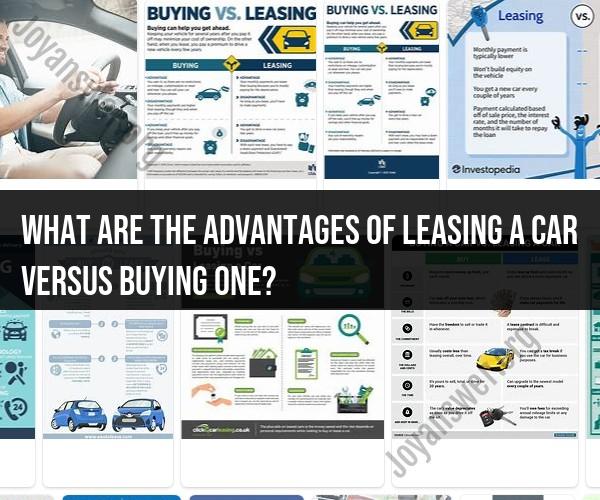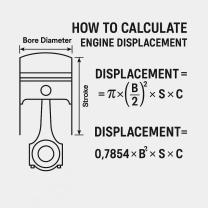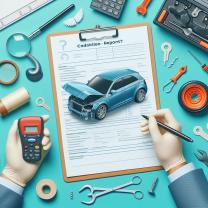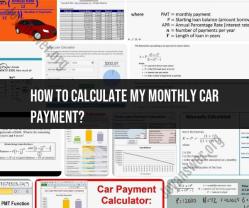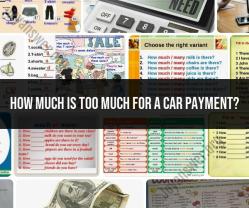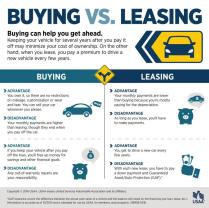What are the advantages of leasing a car versus buying one?
Leasing a car and buying one each has its own set of advantages and disadvantages. Here's a breakdown of the pros and cons of leasing a car compared to buying one:
Advantages of Leasing a Car:
Lower Monthly Payments: Lease payments are typically lower than loan payments for purchasing a similar vehicle. This can free up more cash in your monthly budget.
Newer Cars: When you lease, you're driving a new or relatively new car with the latest technology and features. Lease terms are usually 2-4 years, so you can enjoy the benefits of a new vehicle more frequently.
Lower Repair Costs: Since leased vehicles are typically under warranty for the duration of the lease, you won't have to worry about major repair expenses.
Sales Tax: In some states, you only pay sales tax on the portion of the car's value that you use during the lease term, reducing your overall tax bill.
No Resale Hassles: At the end of the lease term, you simply return the car to the dealer without worrying about selling it or trading it in.
Disadvantages of Leasing a Car:
Mileage Limits: Lease contracts often come with mileage limits, and exceeding them can result in extra charges at the end of the lease.
No Ownership: When you lease, you don't own the vehicle. You're essentially renting it for the lease term and have no equity in the car.
End-of-Lease Costs: You may face additional costs for excess wear and tear, mileage overages, or other charges when returning the leased vehicle.
Limited Customization: Lease agreements usually prohibit or limit customization of the vehicle.
Advantages of Buying a Car:
Ownership: When you buy a car, you own it outright, which means you have the freedom to keep it for as long as you want.
No Mileage Limits: There are no mileage restrictions when you own a vehicle, so you can drive as much as you like without penalties.
Equity: Over time, as you pay off the loan, you build equity in the vehicle, which can be used as a trade-in or sold when you decide to upgrade.
Customization: You have the freedom to modify and customize the car to your liking.
Disadvantages of Buying a Car:
Higher Monthly Payments: Loan payments for purchasing a car are often higher than lease payments for a similar vehicle.
Depreciation: Cars generally depreciate in value over time, and you may face a loss of value when you sell or trade in the vehicle.
Maintenance Costs: As the owner, you're responsible for maintenance and repair expenses once the warranty expires.
Long-Term Commitment: Buying a car means committing to ownership for a more extended period, which may not be suitable for those who prefer changing vehicles frequently.
Considerations When Choosing:
Budget: Consider your monthly budget and how much you can afford in car payments.
Driving Habits: Estimate your annual mileage to see if it aligns with lease mileage limits.
Ownership Preference: Decide whether you prefer owning a vehicle outright or having the flexibility to change cars more frequently.
Resale Value: Research the expected resale value of the car you're interested in, as it can vary among different makes and models.
Interest Rates: Check current interest rates for auto loans, as they can impact your monthly payments if you choose to buy.
The decision between leasing and buying a car depends on your individual needs, priorities, and financial situation. Carefully weigh the pros and cons, and consider consulting with a financial advisor to make an informed choice.
